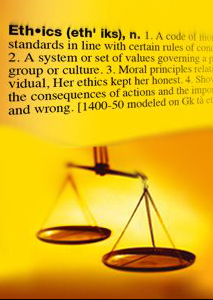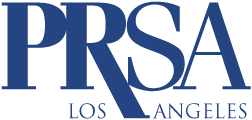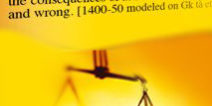 Part of our ongoing discussion on PR industry ethics…
Part of our ongoing discussion on PR industry ethics…
As part of PRSA’s Code of Ethics, there are six PRSA Code Provisions of Conduct. One deals with the disclosure of information. Review the following information, and think about what you would do If you were faced with the ethical dilemma presented below.
DISCLOSURE OF INFORMATION
Core Principle:
Open communication fosters informed decision making in a democratic society.
Intent:
- To build trust with the public by revealing all information needed for responsible decision making.
Guidelines:
A member of PRSA shall:
- Be honest and accurate in all communications.
- Act promptly to correct erroneous communications for which the member is responsible.
- Investigate the truthfulness and accuracy of information released on behalf of those represented.
- Reveal the sponsors for causes and interests represented.
- Disclose financial interest (such as stock ownership) in a client’s organization.
- Avoid deceptive practices.
Examples of Improper Conduct Under this Provision:
- Front groups: A member implements “grass roots” campaigns or letter-writing campaigns to legislators on behalf of undisclosed interest groups.
- Lying by omission: A practitioner for a corporation knowingly fails to release financial information, giving a misleading impression of the corporation’s performance.
- A member discovers inaccurate information disseminated via a website or media kit and does not correct the information.
- A member deceives the public by employing people to pose as volunteers to speak at public hearings and participate in “grass roots” campaigns.
ETHICS DILEMMA
You work in a corporate communications division for a manufacturer. Management decides the company needs a new, fresh logo. As a member of the team assigned this task, you are asked to propose three concepts. You do research on the Internet and identify three promising ideas.
Question to ask
How can you ethically use research as inspiration for a creative idea? How can you avoid plagiarism in applying what you learn?
Guidance from PRSA’s Code of Ethics: Disclosure of Information
Most logos, names, design elements are adaptations of thoughts and ideas seen somewhere else.
Using any visual design element exactly as it exists elsewhere is not ethical or legal. Adapting a style or approach is generally acceptable as long as it is changed enough to be unique. For example, a type treatment, color application or illustrative style from an existing logo might be modified and adapted to stand as a unique identity for a business with a different name and mission. The end result must represent the client with its own unique identity. Before the Internet existed, designers relied on the legal industry to do trademark checks when developing logos. Today, the Internet provides fast, preliminary and comprehensive access to vast amounts of information and increases the success of generating original ideas.
Learn more about PRSA’s Code of Ethics and how it can guide decisions you make on behalf of your clients here.








